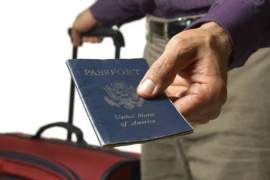
Everything You Need To Know About a Green Card

What is a Green Card? A Green Card is a formal legal document that permits a non-citizen to reside within the United States on a permanent basis. During this permanent residency, theholder of the Green Card is entitled to be gainfully employed while residing legally in the United States. A Green Card is common, which is also known as a Permanent Residency Card, requires the fulfillment of various obligations regulated by the United States Immigration Services. There are a few distinct ways to obtain a green card, the most common of which are achieved through one’s employer, through marriage, or through educational and government programs. Steps to Obtain a Green Card Green Cards through an Employer: A non-citizen of the United States can obtain permanent residency through sponsorship offered by their respective employer. When an applicant receives sponsorship, their employer is in essence, vouching for the character, ability, and liability of the applicant in question. In order to obtain sponsorship, the applicant will be required to submit the following documentation and forms: 1. The applicant is required to file a Labor Certification Application. A variety of these forms can be accessed through the United States Department of Labor. The forms will vary depending on the nature of the applicant’s employment. 2. The applicant is also required to file Form ETA-750. This document is the application for Alien Employment Certification, which is a standard requirement for all non-citizens requesting permission to be employed in the United States. Green Cards through marriage: When a non-resident marries a citizen of the United States, the non-citizen can apply for a Green card subsequent to the marriage. To complete the process, the non-resident must fulfill the following requirements: 1. The applicant must file the Form I-485, which is an application to adjust the status of residency from temporary to permanency. 2. Additionally, an individual is required to complete a K-1 form, which is a form that substantiates that the fiancé plans on legally marrying a United States citizen and plans to enter America to do so. 3. The G-325A form must also be completed; this form provides official documentation, and records the non-citizen’s biographical information with the Immigration department’s database. The G-325A form must be completed prior to satisfying the Green Card application process. 4. Lastly, the I-130 form must be completed, which is a petition for a non-citizen to enter the United States by means of legal and lawful marriage. Legal Assistance associated with the obtainment of a Green Card In the event that an applicant experiences difficulty while undergoing the Green Card process there are a variety of resources and avenues that can offer assistance: 1. The United States Citizenship and Immigration Services Bureau can be contacted through their toll-free phone number: (800) 375-5283. This service will provide additional information to elucidate on the applicant process. The representatives at the Bureau will offer information concerningadditional requirements, the expedition of applications, citizenship requirements, and supplemental immigration legislation are encouraged to: Arrange an appointment with an Immigration Case Worker through the InfoPass program, which is the online interview and appointment portal located on the USCIS website Request information – both in digital or hard-copy form – from the USCIS documentation and resource database 2. If the applicant is still confused over the application process it is highly recommended that the individual seek the aid of an Immigration Attorney. These legal professionals can be instrumental throughout the application process with regard to a Green Card. Immigration attorneys are well-versed in immigration legislation, form requirements, stipulations, and conditions applicable to the attainment of approval for the expressed permission of legal entry into the United States.Immigration attorneys will streamline the application process by advising their respective client(s) through the arrangement of paperwork, investigating immigration status, and ensuring the legality of all immigration-based activity and requests.



















